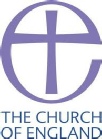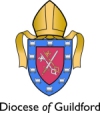© Parish of Hawley 2021




The Hawley Branch of the Mothers' Union meets in Trinity Hall at 8:00 p.m. on the third Monday of each month. The M.U. is a worldwide Society formed for the advancement of the Christian religion in the sphere of marriage and family life. There is a full programme of events and speakers.
The Leader is Mrs Joan Young who may be contacted via enquiries@parishofhawley.org.uk
The Mothers' Union
Was founded in 1876 by Mary Summer. It was started in a sitting room with a few mums and babies.
Now it has over 800,000 members who have a Christian concern for families world-wide. It has links of prayer and concern around the world and has recognition from government and statutory bodies as a voice to be heard.
What is the Mothers' Union
The Mothers' Union is an international Christian Organisation whose aim is to promote the value of marriage and stable family life.
The organisation has over 800,000 members in over 50 countries. Its members are actively involved in running projects and practical initiatives , offering support to families throughout the world.
The purpose of the Mothers' Union is to be specially concerned with all that strengthens and preserves marriage and Christian family life.
The Five Objects are:
- To uphold Christ's teachings on the nature of marriage and to promote its wider understanding.
- To encourage parents to bring up their children in the faith and life of the Church.
- To maintain a world-wide fellowship of Christians united in prayer, worship and service.
- To promote conditions in society favourable to stable family life and the protection of children.
- To help those whose family life has met with adversity.
MU members are male, female, single, married, divorced or widowed, young or old, many are involved in their own parish and community life. All are helped and strengthened by the prayer and support of other members.
New members who are interested in the work of the MU are always welcome.
Action & Outreach Worldwide
The Mothers' Union has around 800,000 members worldwide, 80% of whom live outside the UK and Ireland in Africa, Asia and the Far East, where disease and conflict are commonplace. The women in these areas, often facing particular adversity maintain lives of prayer and service. For more than 90 years, in partnership with local members, the Mothers' Union has encouraged educational and self help projects to grow and flourish across the world. This work is supported by the Overseas Fund.
The fund provides support in the following ways:
- Comprehensive training for members and workers in developing advocacy and leadership skills to take back to their towns and villages. These women work with the communities in which they live, offering advice on issues such as health, agriculture, child-care and self-help initiatives.
- Funding for Conferences and seminars on issues affecting women's day-to-day lives. These include widowhood, their civil and legal rights and family life.
- Grants for cars, trucks, motorcycles, bicycles and boats. These are essential in remote area where most workers live.
- Encouragement of self-help initiatives such as small-livestock holdings, soap-making and other craft co-operatives. Such projects enable the women to earn a living and become less dependent.
Self Help Projects
Women generally have very little access to credit or opportunity to gather capital. Therefore they have very few resources with which to begin projects which need initial funding for materials or equipment. The only projects open to them usually depend on small scale agriculture which have poor returns, are physically exhausting and are subject to weather or disease.
Small grants from the Mothers' Union for equipment are often the catalyst for exciting developments. For instance a few thousand pounds to purchase a machine to press oil from sunflowers has undreamed of benefits. Pure sunflower oil is a valuable food and also a marketable commodity. The pressed seeds are good cattle food, and the cattle give milk and meat, also manure to grow better sunflowers.
The income from such projects enables a small salary to be paid to those involved in the project and provides funds for local Mothers' Union and Church. Managing a project gives valuable commercial experience and training to the women involved.
Suggestions for suitable initiatives are made by the Mothers' Union of the diocese involved and are carefully researched before grants are made.
Outreach Projects
Not all initiatives can become self-sufficient; some are desperately needed community projects which will always need funding. Many of these involve working with children, especially in the cities of the developing world where mothers must work and no childcare is available. In the Gambia, for example, a bakery, run by the Mothers' Union, provides support for a nursery school. Children of all faiths are cared for.
The Relief Fund
When tragedy strikes, often as war, famine or flood, it is women and families who may be the most vulnerable. The main aid agencies and governments have well practised methods of helping, but may take time to get into action. With a little immediate help, local communities can do a great deal to help themselves. Grants from the Relief Fund are sent quickly so that food can be purchased locally. A lorry load of beans from a local market not only saves lives but assures those with problems that elsewhere people know and care about their plight.
Through its Relief Fund, the MU has the facility to respond swiftly to specific disasters and emergencies such as the civil war in Rwanda and the Tamil refugee crisis.
Conferences and Seminars
Attendance at a conference or seminar arranged by the Mothers' Union is often the only time in the lives of some women when, freed from everyday chores for a few days, they can consider other aspects of their lives. Requests for help towards funding are received from dioceses and provinces throughout the Anglican Communion.
A proportion of the costs of these events is raised locally by the participants, but without some additional funding, few could take place.
Topics suggested by the applicants, address key issues affecting their lives and families. Issues such as parenting, rebellious teenagers, alcohol and drug abuse, marriage and family breakdown are common worldwide. Local problems may be legal issues such as widows' rights, or peace, justice and reconciliation following major conflicts. All aspects of AIDS, its prevention and caring for sufferers, are also addressed.
Mothers' Union Workers
More than 240 women are employed by their dioceses and provinces as Mothers' Union Workers and Trainers. All local women, they speak local languages, understand local customs and culture and are trusted by the women among whom they work. They have important influence in their broader communities and their work covers many diverse areas such as spiritual growth, healthcare, nutrition, leadership and economic activities.
Grants are made to dioceses to assist with the costs of salary and travel for the workers. When appointed the workers already have the necessary qualifications and communications skills for their work. Where possible these are upgraded by appropriate training.
Where does the money come from?
Members all around the world contribute to the Overseas Fund and Relief Fund. However the bulk of the £0.5 million which we have to spend annually comes from members of the Mothers' Union in the UK and Ireland and their friends. Members are encouraged not to put geographical or personal limits on where their gifts may be used.
Where does the money go?
Grants are made to dioceses in Africa, India, Myanmar,South and Central America and the Pacific. The grants are made to groups actually doing the work, receipts and regular reports are required.
In accordance with the Beijing Declaration The Mothers' Union is committed to exploring the implications of global issues for its members, their families and communities.
Through its members worldwide the Society has gained an understanding of the social and economic effects of international debt on women's lives, and is responding through research and practical action.
Action & Outreach Holidays
Not everyone can afford the luxury of getting away for a while. The MU'S nationwide scheme, Away from it All Holidays (AFIA) enables people experiencing emotional stress or financial hardship to have a much needed break, with 45% of applicants referred by social workers, the probation service, clergy and teachers.
Most of the AFIA holidays are taken up by families on low incomes, many of whom are lone parents.
Others who have benefited fro AFIA include those with physical and learning disabilities, those caring for the sick or elderly relatives and children in need.
AFIA organises over 750 holidays a year, enabling over 1000 children to enjoy a holiday.
Action & Outreach and Prisons
Having a husband or partner in prison places a great strain on the family left behind. Working with the prison authorities the Mothers' Union is involved in innovative projects in over 45 prisons in England and Wales. These include:
- Play areas in which visitors' children can be happily occupied, allowing couples to have time to talk.
- Baby units in women's prisons enabling mothers to attend rehabilitation /training courses.
- Refreshment counters in visitor's areas where volunteers provide tea, coffee and a listening ear.
Action & Outreach and the Media
The media has a tremendous influence on all our lives, and especially of our children. The Media Awareness Project (MAP) encourages people to be more aware of the effect of the media, enabling them and their families to be discerning media consumers.
MAP is an ecumenical venture, offering free literature, resources and speakers for workshops. Over 4,000 people receive the MAP newsletter, which is produced three times a year.
Members regularly provide feedback, both praise and constructive criticism, to the BBC, Independent television and media regulatory bodies.
Action & Outreach and Social Policy
The Mothers' union has an active involvement in social policy issues, monitoring and addressing their effects on family life. The membership influenced the 1996 divorce law reform, promoting pro-family legislation.
The changing pattern of family life, including the growing practice of cohabitation before marriage, is one area of social policy analysis. Working collaboratively with other organisations is a key principle in the social policy work, for instance in current research on infant milk formula, where staff are working with another international aid agency.
Action & Outreach and the Community
As well as large scale Projects such as MAP , AIFA and prison support work, members run 150 local projects which address the specific needs of their community. Projects include "Friends for Parents" schemes in hospitals, and contact centres, which enable family links to be maintained.
Action & Outreach and Marriage & Parenting
The Mothers' Union upholds the commitment of Christian Marriage. At the same time it is realistic in its approach to marriage in today's society. Marriage preparation and parenting courses are provided to help couples recognise the commitment they are making, offering practical advice on how to manage challenges as they arise.
| Baptisms |
| Weddings |
| Funerals |
| HAMS |
| Mothers' Union |
| Bellringers |
| Trinity Hall |
| All Saints' Hall |
| Holy Trinity |
| All Saints' |
| Family History |
| Harriet Wyatt |